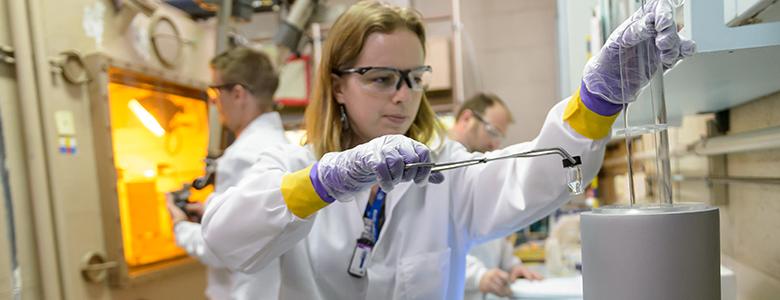EOF division helps Argonne scientists stay at the forefront of nuclear medicine

Postdoctoral researcher Robin de Kruijff (PHY) helps Dave Rotsch (CFC) (left) and his team study radioisotopes for medical applications.
Every day, 40,000 patients undergo diagnostic scans using radioactive isotopes in the U.S. to help detect cancer and other diseases. Argonne scientists specialize in research and development of the radioactive isotopes that shine a light on what’s happening inside the body during these procedures. In addition to such diagnostic isotopes, other isotopes are being developed at Argonne for therapeutic applications.
These procedures rely on radioisotopes that may be in short supply or not commercially available at all. The laboratory’s scientists and engineers are stepping in to help make these critical isotopes more readily available to detect and treat diseases.
Much attention goes to the scientists leading medical isotope research. Yet a group of intrepid engineers and designers in the lab’s Experimental Operations and Facilities (EOF) division are playing a vital supporting role in two medical isotope programs — Argonne’s Radioisotope Research and Production Program (R2P2) as well as its Molybdenum-99 program.




